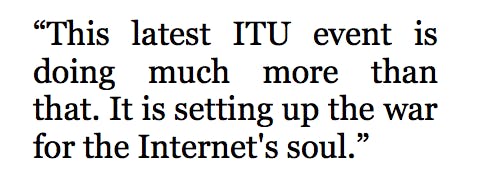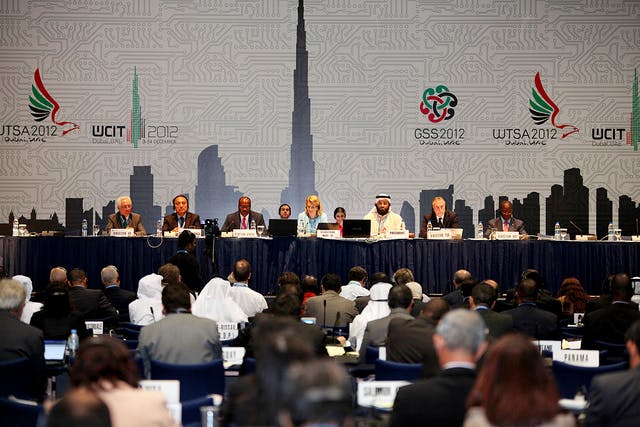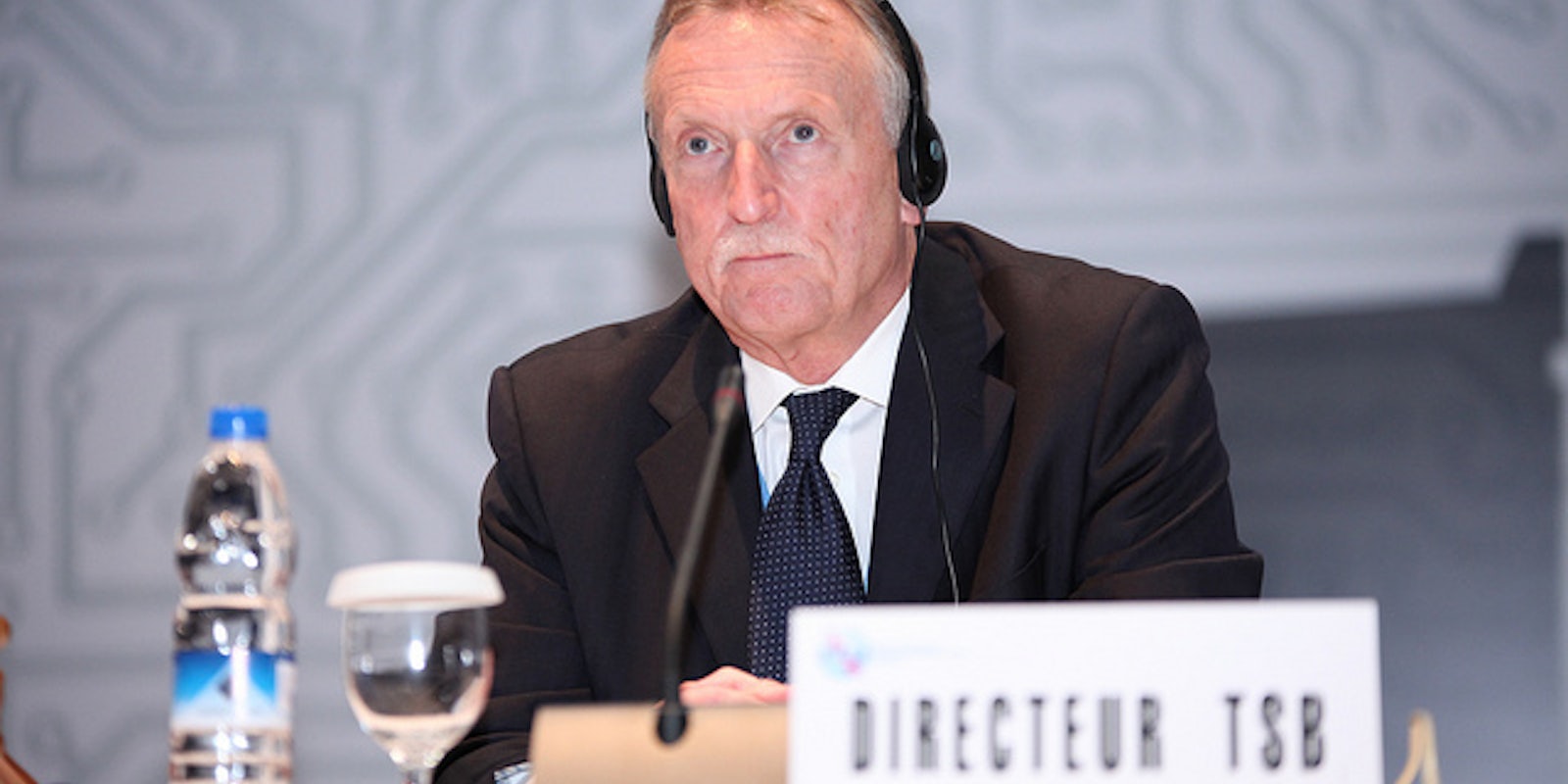By CHRIS R. ALBON
Chris R. Albon is a political scientist and writer on the global politics of science and technology. Presently, Chris leads the Governance Project at FrontlineSMS. Prior to FrontlineSMS, Chris earned a Ph.D. in Political Science from the University of California, Davis.
This past week, members of the International Telecommunication Union (ITU), the United Nations agency charged with coordinating global information and communication technology regulations, is holding its most important (and very rare) conference. The event is called the World Conference on International Telecommunications (WCIT) and was last held in 1988 in Melbourne. That conference established the foundational rules on which the Internet has been built.
At first glance, the latest conference (called WCIT-12) is an attempt to allow communication ministers from almost 200 countries to update those basic rules of telecommunications which were first established when the Internet was clearly still in its infancy. But this latest ITU event is doing much more than that. It is setting up the war for the Internet’s soul.

The WCIT-12 conference runs for two more days, until December 14th. Already two very troubling proposals have appeared. First, the ITU has approved a standard of deep packet inspection. As originally conceived, networks on the Internet did not examine the contents of the packets that travelled over their systems. They only looked at the packet’s header to see where they should send that packet next. In deep packet inspection, the network examines both the header and the packet’s content before forwarding it on. To put this simply, it’s like a postal worker taking a peek at your letters before putting them in your mailbox. 
It may be true that, as Richard Chirgwin points out in The Register, the standardization of deep packet inspection means little in the near term. Governments like Russia, Syria, and the United States have inspected packets before, and they will continue to do so in the future. The approved proposal is not a new acceptance of deep packet inspection, rather a best practice standard for governments conducting surveillance against citizens and for corporations in prioritizing more profitable data. Frankly, a global acceptance of deep packet inspection seems more disturbing in the long run.
The second proposal is more immediately worrisome. Last week Russia, the United Arab Emirates, China, Saudi Arabia, Algeria, Egypt and Sudan put forward a proposal to bring more of the Internet under state control through undermining the current bodies governing domain names and IP addresses. These organizations—ICANN and IANA— only developed after 1988. While they have had their own host of problems, they have done relatively well at maintaining neutrality in managing the technical aspects of the Internet. The new proposal would instead putting governments in charge of the domain names and IP addresses of communication services within their borders. Thankfully, a wave of support lead by Google and others was able to pressure the governments to table to proposal.
Make no mistake, this proposal was not some technocratic proposition to improve network performance. It was an attempted coup by some of world’s most authoritative governments to take the commanding heights of the Internet. And it won’t be the last. So much of the Internet’s freedom, and its power for democratization, lies with the serendipitous freedom that the rules set up in 1988 allowed, letting much of the Internet develop outside government control. While there has been political interference in ICANN, cases are thankfully uncommon. If this proposal had been approved, it would have brought the most critical element of the Internet’s infrastructure firmly under the control of governments, and fundamentally changed the Internet as we know it.
With a few days of WCIT-12 left to go, we can already take away a larger lesson from these two proposals. The era between the first and second WCIT conferences was about building the technical structure of the Internet and the content riding over its networks; the era between the second and third WCIT conferences will be something else entirely. It will be a war for the freedom of the soul of the Internet from government interference and control.
Photographs by itupictures


